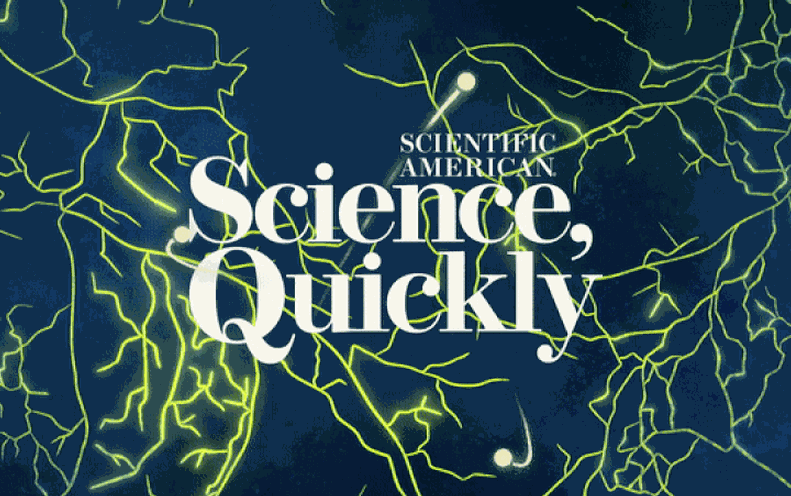CLIMATEWIRE | President Joe Biden will create a new national monument in Arizona on Tuesday covering close to a million acres of lands surrounding the Grand Canyon important to nearby Native American tribes. The Baaj Nwaavjo I’tah Kukveni–Ancestral Footprints of the Grand Canyon National Monument will be the fifth designated by Biden in the past 10… Continue reading Grand Canyon Gains New Million-Acre Monument
Category: Quantum Stuff
Machine Learning Aids Classical Modeling of Quantum Systems
Understanding the quantum universe is not an easy thing. Intuitive notions of space and time break down in the tiny realm of subatomic physics, allowing for behavior that seems, to our macro sensibilities, downright weird. Quantum computers should allow us to harness this strangeness. Such machines could theoretically explore molecular interactions to create new drugs… Continue reading Machine Learning Aids Classical Modeling of Quantum Systems
How Scientists Are Tackling the Tricky Task of Solar Cycle Prediction
The sun looks immutable, a boring celestial lightbulb that’s always turned on. But this fusion-powered ball of plasma is in constant flux. Every 11 years or so, it swings between slumber and an active, unruly epoch marked by sunspots and solar eruptions, such as flares and plasma outbursts. The sun is now approaching its maximum level of activity in… Continue reading How Scientists Are Tackling the Tricky Task of Solar Cycle Prediction
The Fungi Economy, Part 3: Can Climate Modeling from Space Save Our Forests?
Meg Duff: For Science, Quickly, I’m Meg Duff. [CLIP: Show music] Meg Duff: Last week, if you missed it, I was up in Harvard Forest, learning about a hidden economy: underneath our feet, plants and fungi are constantly trading carbon and nutrients. Duff: Trees use carbon as currency to trade with fungi. Scientists have figured… Continue reading The Fungi Economy, Part 3: Can Climate Modeling from Space Save Our Forests?
The Biggest Smallest Triangle Just Got Smaller
Consider a square with a bunch of points inside. Take three of those points, and you can make a triangle. Four points define four different triangles. Ten points define 120 triangles. The numbers grow quickly from there — 100 points define 161,700 different triangles. Each of those triangles, of course, has a particular area. Hans… Continue reading The Biggest Smallest Triangle Just Got Smaller
Physicists Observe ‘Unobservable’ Quantum Phase Transition
In 2019, Noel and her colleagues began collaborating with two theorists who had come up with an easier way of doing the experiment. They had worked out a way of setting aside one qubit that, like a canary in a coal mine, could serve as a bellwether for the state of the entire chain. The… Continue reading Physicists Observe ‘Unobservable’ Quantum Phase Transition
The Usefulness of a Memory Guides Where the Brain Saves It
Scientists have recognized that memory formation is a multistage process since at least the early 1950s, in part from their studies of a patient named Henry Molaison — known for decades in the scientific literature only as H.M. Because he suffered from uncontrollable seizures that originated in his hippocampus, surgeons treated him by removing most… Continue reading The Usefulness of a Memory Guides Where the Brain Saves It
Why Mathematical Proof Is a Social Compact
Now, with the use of not just computers but even AI, how is the notion of proof changing? We’ve moved to a different place, where computers can do some wild things. Now people say, oh, we’ve got this computer, it can do things people can’t. But can it? Can it actually do things people can’t?… Continue reading Why Mathematical Proof Is a Social Compact
Ruins of Emperor Nero’s Theater Discovered near Vatican
Ahead of construction of a luxury hotel, archaeologists working at a site near the Vatican unearthed the ruins of a private theater where the notoriously cruel Roman emperor Nero once prepared for his public appearances. The whereabouts of the first-century-C.E. theater, which is described in Roman writings, were unknown until now. The researchers who made… Continue reading Ruins of Emperor Nero’s Theater Discovered near Vatican
Alan Turing and the Power of Negative Thinking
Algorithms have become ubiquitous. They optimize our commutes, process payments and coordinate the flow of internet traffic. It seems that for every problem that can be articulated in precise mathematical terms, there’s an algorithm that can solve it, at least in principle. But that’s not the case — some seemingly simple problems can never be… Continue reading Alan Turing and the Power of Negative Thinking


